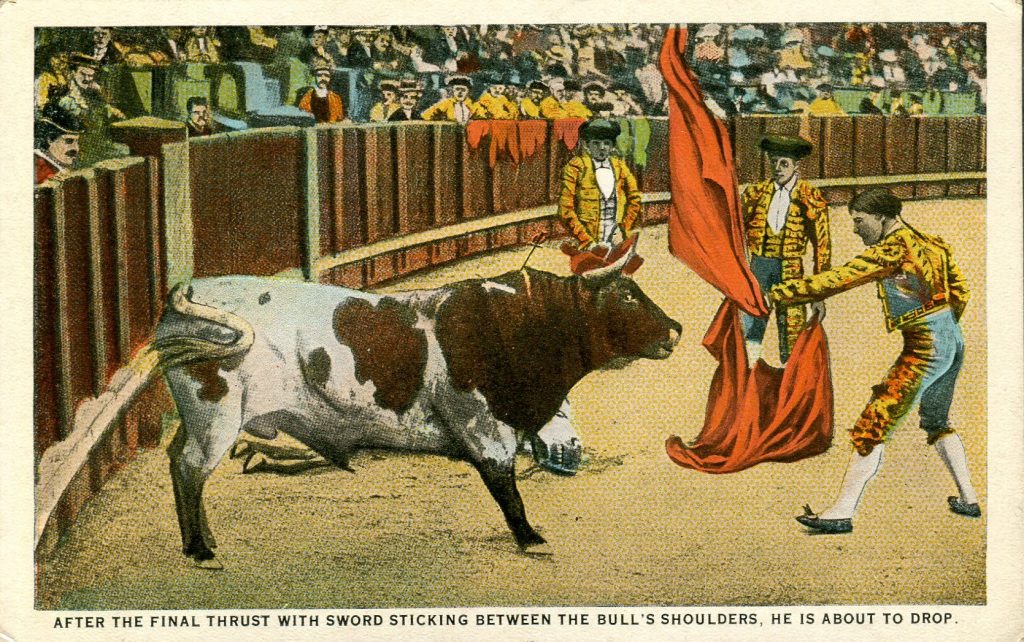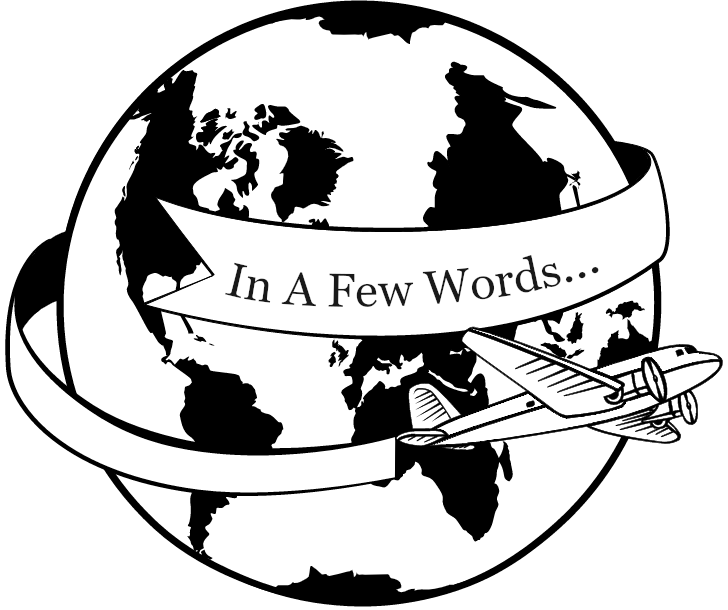(I plagiarized this title from Bruce Schoenfeld*.)
Bullfighting. The very word raises the hackles of some people, and you know who they are; I shall be quiet about who – for now! I have opinions about a lot of things but not bullfights. This is a topic that is too complex and inter-disciplined to understand without growing into an opinion, and I’m simply too old to take that much time and use that much energy to learn whether I do or don’t like bullfights. I hope I don’t make any enemies with what I’m about to write, but that has never stopped me before.

Americans have every right to be proud. This country has accomplished, in only 228 years, more, in every way, than any other society with a recorded history.
To that end, I would like to say to at least some of my fellow-Americans, “Back-off the critical condemnation of other cultural practices just because, as an American, you may think differently.”
I often seethe when I hear Americans who are visitors in foreign countries say, “It’s not like this at home.” Well of course, it’s not like home; it’s England or France or Brazil. If those tourists don’t care to experience cultural differences, why do they travel? Stay the hell home!
What has raised my hackles – this time – is a recent call by an American animal-rights organization for the abolishment of the century’s old, Spanish custom of running with the bulls at Pamplona, Spain.
Yes, it is an outrageous custom, but it is their custom; not ours. How would Americans react to a European call to abolish the National Football League?
Let me tell you about Pamplona. Those friendly and delightful 175,000 Spaniards celebrate life with the feast of San Fermín each July by running bulls though the streets to the bullring, and with bullfights, jai-alai matches, fireworks, and singing contests.
The city is a major European industrial complex with sugar mills, wine making, canning, meat packing, brewing, and tanning.
The Pamplonians also make firearms, flour, fertilizer, shoes, chemicals, textiles, and candy.
Pamplona is noted for its 14th century Catholic Cathedral, a world class university and museum, and its Baroque town hall.
Pamplona is the site of the Festival of Navarra, a summer program of theater, music, and dance, and an autumn festival called Ronda de Otoño, a series of art exhibitions and performances.
Pamplona was founded about 75 BC, probably by the Roman general and statesman Pompey the Great – from whom its name is derived. This strategic outpost of the Basques was occupied by the Visigoths in 476 AD and was sacked by Charlemagne in 778. The Moors captured Pamplona during the 8th century. In 824 the Basque kingdom of Pamplona was founded. It was renamed the kingdom of Navarre, and Pamplona remained its capital until 1571 when Philip II, King of Spain, built the city into a major fortress.
Pamplona has a long and storied history, and yes, they have bullfights. That is unfortunate, but as Americans, don’t you agree that we should embrace the differences of all cultures? I do, but I wouldn’t want to take-up most of the world’s practices. If Americans want the world to do as we do, there wouldn’t be anywhere to go where we could say, “It ain’t like this at home.”
*Bruce Schoenfeld, is an acclaimed magazine and television journalist. He frequently contributes to national and international publications, including Sports Illustrated, Travel & Leisure, and the New York Times Magazine. He won Emmy Awards for his writing on the 1988 Olympic Games in Seoul and the 1996 Olympic Games in Barcelona. He is the author of The Last Serious Thing: A Season at the Bullfights.
